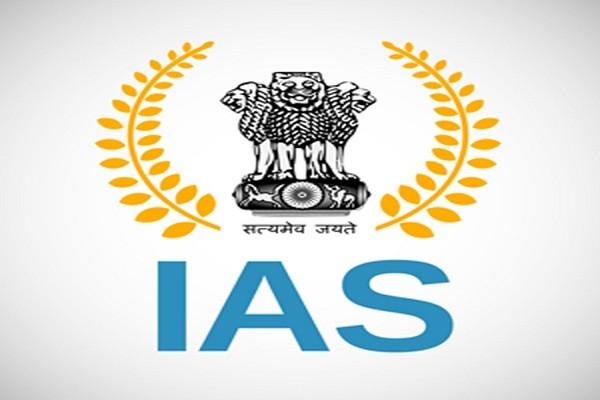Even though the Indian economy is slowly inching towards normalcy by opening up post lockdown, facts tell us that the COVID-19 outbreak is here to stay. In such an environment, it is natural for IAS Exam aspirants to get overwhelmed, given the limited number of avenues for preparation. Well, it is not possible to prepare for the UPSC exam in a short span of time. All the toppers and exam qualifiers have admitted that the clearing IAS exam needs a lot of practice and patience. Before we explore the different, innovative ways to prepare, let’s take a look at a few facts that you must know if you are preparing for the IAS exam 2020.
The Union Public Service Commission is the exam conducting body for the exam. The offline exam is conducted once every year. Anyone from 21 to 32 years of age can appear for the IAS exam; reserved category candidates get some relaxation in the upper age limit. A graduation degree is an important requirement for an individual to be eligible for the exam.
In the light of the COVID-19 outbreak and to ensure the safety of aspirants, the IAS prelim exam has been postponed to October 4, 2020 (Sunday). While the IAS Main Exam has been postponed to January 8, 2021. For IAS prelims, the examination will follow the multiple-choice questions (MCQs) method. Here, we will discuss how self & online study can be useful to prepare for IAS in the era of COVID-19 pandemic.
IAS Exam Pattern for the Current Year
|
Particulars |
Prelim Exam |
Main Exam |
|
Exam type |
Objective (MCQs) |
Subjective (Written, Interview) |
|
Number Of Papers |
2 (General Studies, Csat) |
7 Papers (2 Language Qualifying, 4 General Studies, 1 Optional) |
|
Marks |
General Studies: 200 Csat: 200 |
Language Papers: 300 Each General Studies: 250 Optional Paper 1: 250 Optional Paper 2: 250 |
How to prepare and crack IAS Exam during this pandemic
Start Self-preparing:
Experts recommend that ideally, one should prepare for at least 1 to 1.5 years before appearing for the IAS exam. Self-preparation of competitive exams can prove to be more helpful than coaching classes. At the same time, IAS is not an exam for which one can prepare in a span of a few months. Having a plan from the early stage of preparation will take you a long way. The preparation for prelims and mains should go hand in hand. A number of topics in both the examinations remain the same, and so, it should be given utmost importance.
Time allocation and management:
The plan should not just include the subjects that you want to cover but also the allocated time period. For instance, 3 hours a day dedicated to prelims, four months dedicated only to mock tests, three months dedicated to the preparation of an optional subject, etc. Stick to the time routine and do not let it spill into the schedule allocated to other subjects.
Choose a place of study for the long term:
For self-study, one needs to identify one place where preparation for a period of 1 to 1.5 years is possible. A number of students decide to move to the metro cities for preparations, but given the COVID-19 situation, it is difficult to say when it will be possible again. Moving to different cities also comes with a high financial cost. This is where online courses and lectures prove to be of immense advantage.
Habits young aspirants must inculcate:
If you are still in school, aiming to crack the IAS exam, it would be best for you to focus on your curriculum. School students should also make it a habit to read at least one newspaper every day. This habit can only be inculcated in the early years of education. Some recommended newspapers are The Hindu, The Indian Express. In the times of COVID-19, when a regular newspaper can be a potential carrier of the virus, one can go for an e-newspaper on Magzter.
Choose your subjects wisely:
Graduation is considered an ideal time for an individual to start preparing for the IAS exam. It provides an individual with an ample amount of time to prepare. If you have just graduated from college, you can select subjects which you already covered in your graduation. Even though the marking pattern in UPSC is not as lenient as it is in colleges, choosing familiar subjects will give you an upper hand. One must also choose subjects that they resonate with or are interested in.
Identify online courses and lectures for IAS Exam:
From a very early stage of preparation, one must identify a few online courses, lectures, or mock tests that can be helpful. One does not have to go for paid ones as a number of free classes are available on websites and youtube. For instance, one can listen to the lectures on geography available on www.insightsonindia.com. One can also try with various online education portals like Prepp.in, Aglasem and many others.
A few months before the exams, one can also arrange mock tests issued by various top coaching classes and try to attempt them in a time-bound manner. There are various online portals like Byjus where you can practice online tests. It is also important to arrange a few books, for which one can again depend on online substitutes like Amazon and Flipkart.
Start the Main preparation after Prelim:
The prelims exam is not about the ranking but only about the selection. Do not wait for the results of the prelims exam to start preparing for the mains. Have confidence in your self-study and preparation. After the Prelim exam, take a break for a week or two if you want to and get back to the IAS Exam preparation. The Main exam is much wider in its approach and requires a structured study. Since the syllabus is vast, one can take a print out from the official UPSC website and stick it on one of the walls of your study room. Memorize the syllabus if you can. Don’t let the vast mains’ vast syllabus overwhelm you.
Rely on official government websites for IAS exam:
One can always refer to the official government websites like PIB, Ministry of Human Resources, Ministry of Women and Child Development for the latest policies.
Hand-written notes over any reference book:
Although the market is flooded with books and study material, when it comes to current affairs, one must always depend on their handwritten notes. For instance, if there is a new law, one can form their opinion by googling the pros and cons and making notes of the same. Thus, it will help in the IAS exam.
So, we hope the above update and preparatory guide will help you with this year’s IAS Exam as well. One can utilize the same strategy in future exams as well as it makes you not to rely on coaching centers where you will be spending a heavy sum for your preparation. Self-study along with referring to online portals for information can make your IAS Exam preparation cost-effective and can be more impactful during this pandemic and times ahead.













No Comments